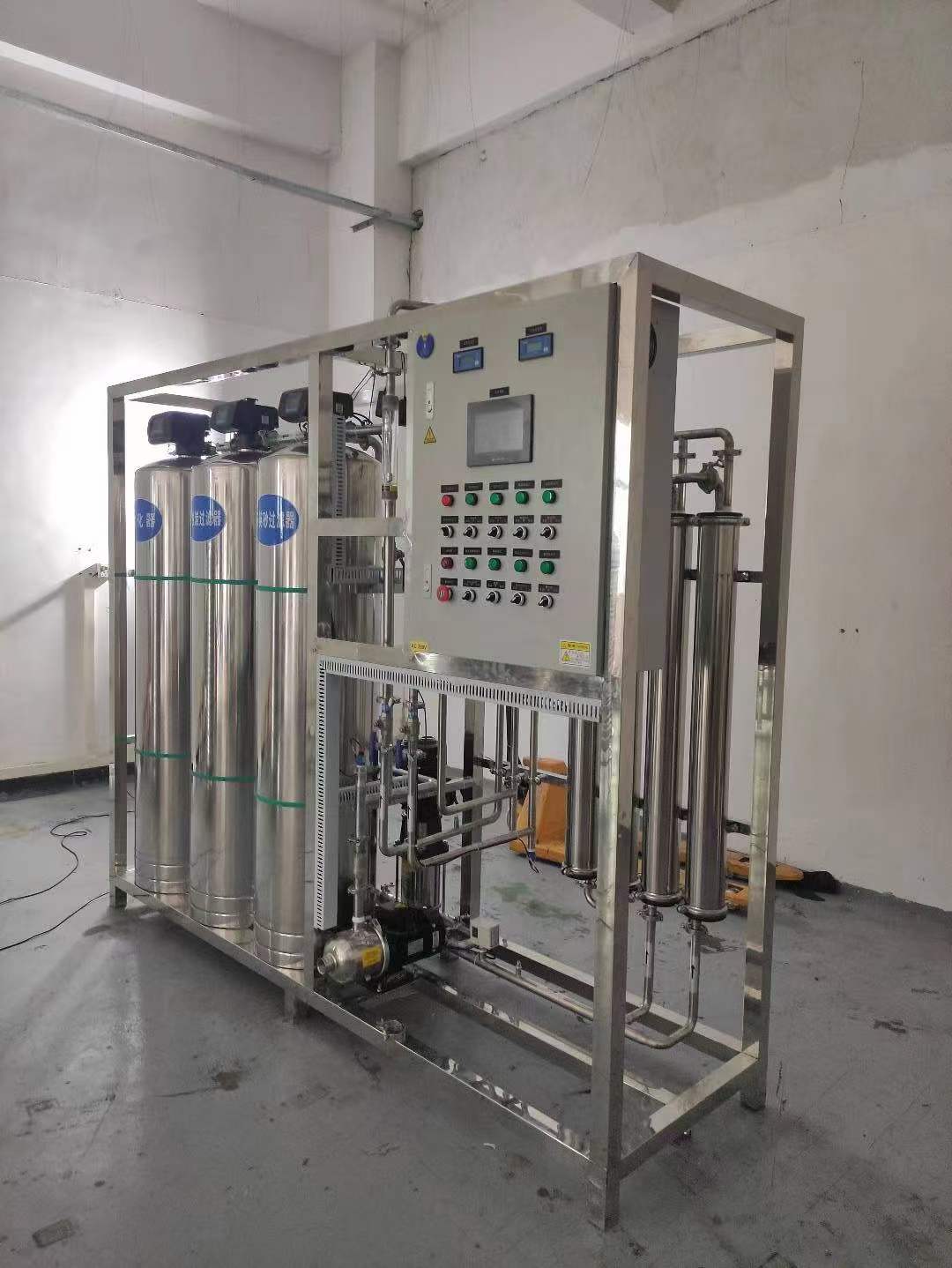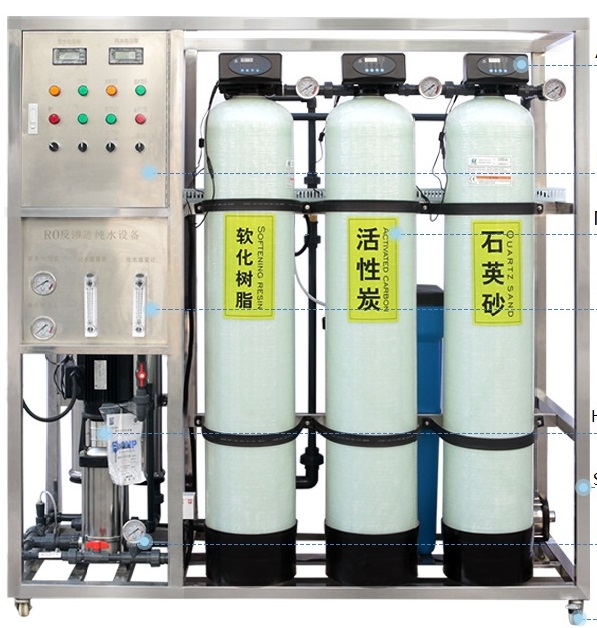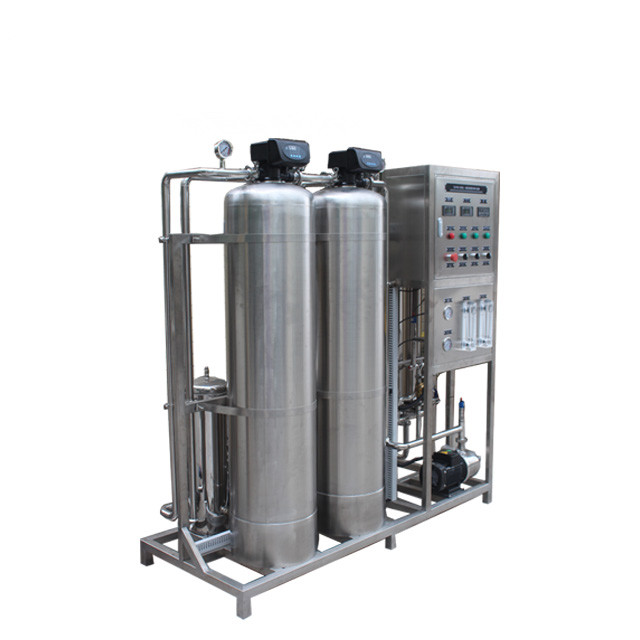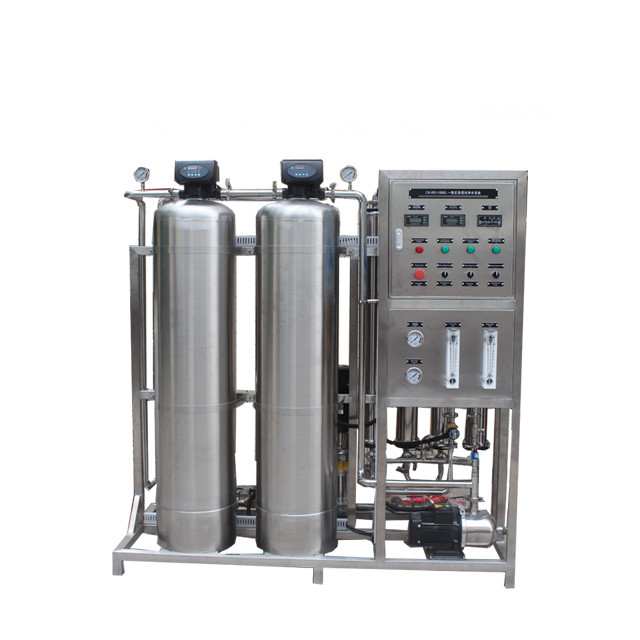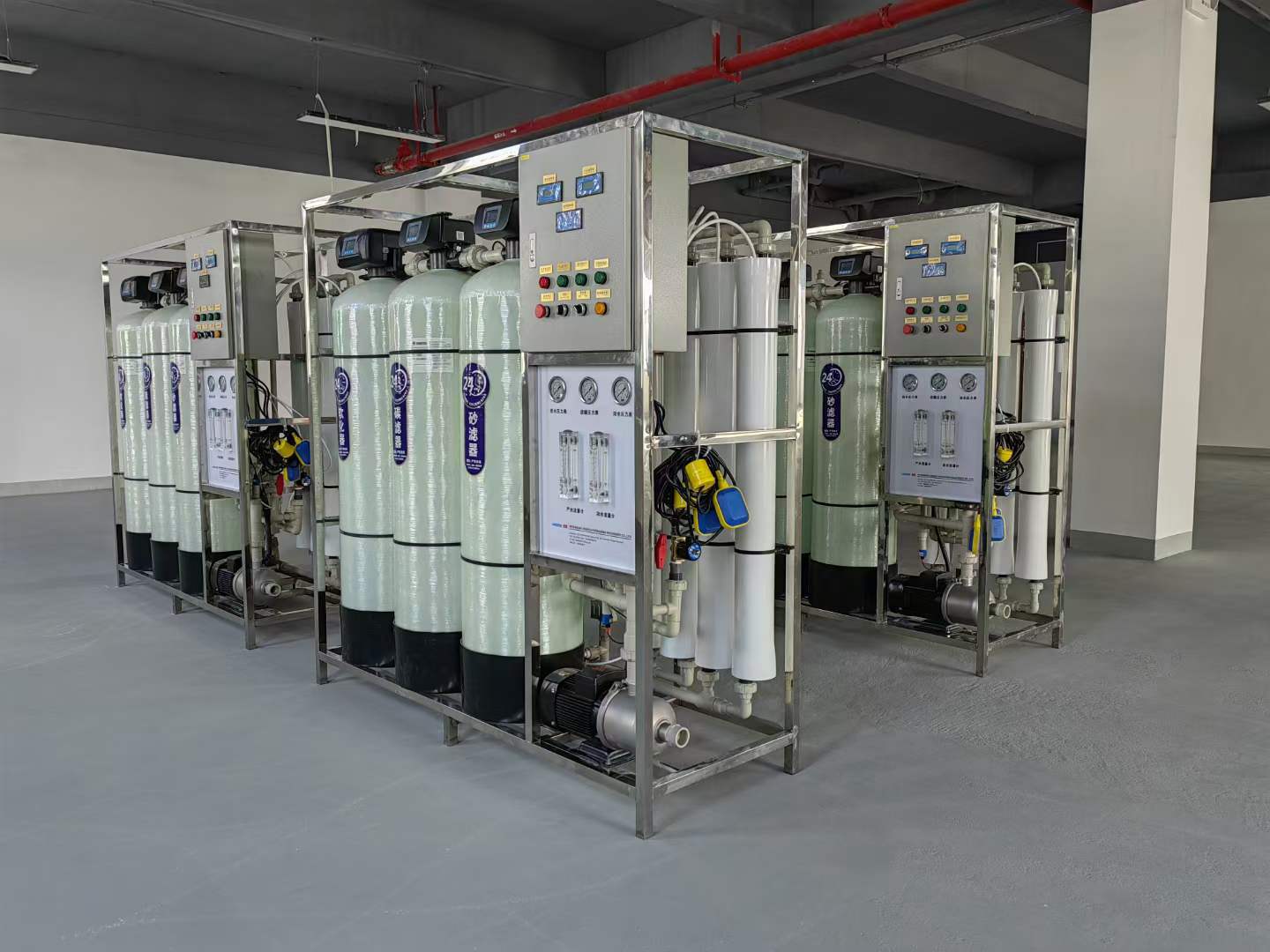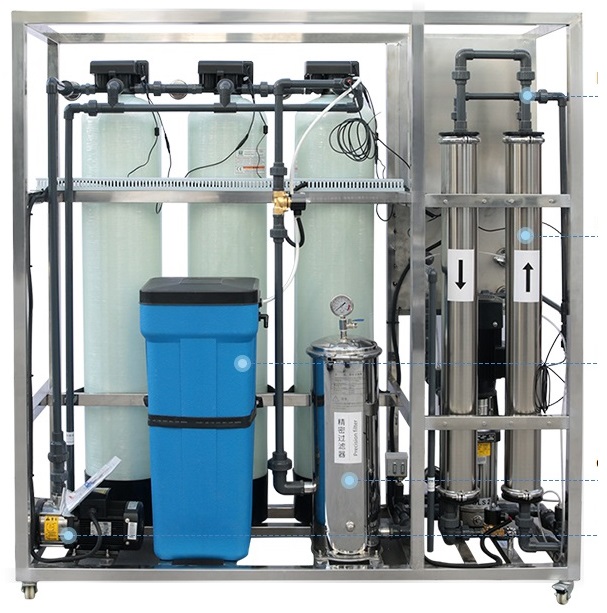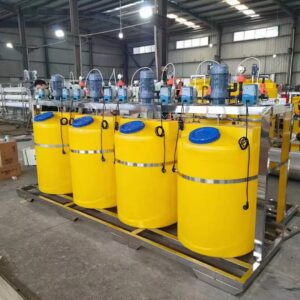STARK Estación depuradora de aguas residuales Equipo de ósmosis inversa para agua química
Address complex wastewater challenges with Stark Water’s STARK Sewage Water Treatment Plant. This comprehensive plant is expertly designed as **saltwater equipment** and integrates a Chemical Water Reverse Osmosis System for advanced purification, ensuring environmental compliance and enabling water reuse from diverse sewage sources.
Descripción del producto
Effective and environmentally responsible management of wastewater is a critical global challenge, particularly as industrial processes generate increasingly complex effluents, sometimes with high salinity. The Stark Water STARK Sewage Water Treatment Plant is engineered as a comprehensive and highly adaptable solution to address these diverse wastewater streams. This advanced plant is designed to purify municipal sewage and various industrial wastewaters, including those with significant salt content, ensuring stringent discharge regulations are met and enabling valuable water reuse.
Comprehensive Sewage Water Treatment Plant Design
Nuestra sewage water treatment plant is typically designed as a multi-stage system, tailored to the specific characteristics of the influent wastewater and the desired effluent quality. The comprehensive process often includes:
- Primary Treatment: Physical separation of large solids and grit (e.g., screening, grit removal, primary clarification).
- Secondary Treatment: Biological processes (e.g., activated sludge, MBR, trickling filters) to remove dissolved and suspended organic matter.
- Tertiary/Advanced Treatment: Further purification steps to remove specific pollutants, nutrients (nitrogen, phosphorus), and trace contaminants. This is where advanced technologies become crucial.
- Disinfection: Final step to eliminate pathogens before discharge or reuse.
This integrated approach ensures maximum contaminant removal, converting challenging wastewater into clean, safe effluent.
Specialized for Saltwater Equipment & Chemical Water Reverse Osmosis System Integration
A key differentiator of the STARK Sewage Water Treatment Plant is its specialized capability as **saltwater equipment**. Many industrial processes (e.g., food processing, oil & gas, textiles, or those using brines) produce saline wastewater that is difficult for conventional biological treatment alone. Our plant can integrate specialized components and processes suitable for high-salinity effluents, including robust biological systems tolerant to salt, and corrosion-resistant materials for all equipment. Furthermore, the inclusion of a Chemical Water Reverse Osmosis System is pivotal for advanced purification, especially when dealing with recalcitrant pollutants or aiming for high-quality reuse. RO acts as a powerful tertiary treatment step, effectively removing remaining dissolved solids, trace organics, heavy metals, and pathogens that biological processes might miss. Chemical dosing is often part of the pre-treatment for RO (e.g., anti-scalant, pH adjustment) or for overall plant optimization (e.g., flocculants, coagulants, disinfection chemicals), making it a truly comprehensive “Chemical Water” treatment solution.
Environmental Compliance and Water Reuse Enablement
By effectively treating complex wastewater streams, our **sewage water treatment plant** ensures strict adherence to environmental discharge regulations, helping industries avoid penalties and improve their environmental footprint. Beyond mere compliance, the integration of advanced technologies like Reverse Osmosis facilitates the production of high-quality effluent suitable for various water reuse applications. This can include irrigation, industrial process water, cooling tower make-up water, or even indirect potable reuse, contributing significantly to water conservation and resource sustainability in regions facing water scarcity.
Parámetros del producto
| Parámetro | Especificaciones / Opciones de personalización |
|---|---|
| Palabras clave principales | Sewage water treatment plant diseño y capacidades. |
| Treatment Capacity | Customizable based on influent flow rate (e.g., from 1 m³/day to 10,000+ m³/day). |
| Influent Water Source | Municipal Sewage, Industrial Wastewater (various types, including high salinity/brackish industrial wastewater). |
| Treatment Stages |
|
| Key Technologies Integrated | Biological Processes, Membrane Filtration (UF/MBR/RO), Chemical Dosing, Disinfection, Sludge Management. |
| Effluent Quality Parameters (Typical Reduction) |
|
| RO System Integration | Custom-designed Chemical Water Reverse Osmosis System for final polishing of effluent (especially for saline wastewater or high reuse standards). |
| Saltwater Compatibility | Designed as saltwater equipment with corrosion-resistant materials (e.g., Duplex SS, specific plastics) and salt-tolerant biological processes where needed. |
| Sistema de control | Fully Automatic PLC Control with HMI, real-time monitoring of flow, pressure, pH, ORP, DO, turbidity, and online effluent quality. Automated backwash, sludge handling, and chemical dosing. Remote control capability. |
| Fuente de alimentación | Trifásico, 380V/415V/460V, 50Hz/60Hz (personalizable). |
| Material de construcción |
|
| Conformidad | Designed to meet specific local and international discharge standards (e.g., EPA, WHO, local environmental regulations). |
| Water Reuse Potential | High (depending on final treatment stages), for industrial process water, irrigation, cooling tower make-up. |
Industria aplicable
- Municipal Wastewater Treatment: For purifying urban sewage from towns and cities, ensuring compliance with environmental discharge standards and potentially enabling treated water reuse for irrigation or other non-potable uses.
- Industrial Wastewater Treatment: Essential for managing and treating effluents from various manufacturing processes including:
- Food & Beverage: Treating high-BOD wastewater from dairies, breweries, slaughterhouses, and food processing plants.
- Textile & Dyeing: Removing color, organic pollutants, and heavy metals from dyeing wastewater.
- Pharmaceutical & Chemical: Treating complex effluents containing organic compounds, salts, and specific pollutants.
- Pulp & Paper: Managing high-volume wastewater with suspended solids and organic load.
- Oil & Gas: Treating produced water, fracking wastewater, and other process effluents, often with high salinity, leveraging specialized saltwater equipment.
- Mining & Metals: Managing acid mine drainage and other process wastewaters, often requiring heavy metal removal and pH adjustment.
- Generación de energía: Treating wastewater from plant operations (e.g., boiler blowdown, cooling tower blowdown) and potentially flue gas desulfurization (FGD) wastewater.
- Hoteles y complejos turísticos: On-site treatment of sewage and greywater, particularly in remote locations or islands, enabling safe discharge or reuse for landscaping.
- Commercial Complexes & Large Institutions: Providing independent wastewater treatment for large office parks, shopping centers, or universities where connection to municipal systems is difficult or expensive.
- Water Reuse & Recycling Projects: As a core component for producing high-quality reclaimed water for industrial processes, agricultural irrigation, or aquifer recharge, by integrating advanced purification technologies like the Chemical Water Reverse Osmosis System.
Ventaja Uno
Ventaja DOS
Productos relacionados
Productos relacionados
PREGUNTAS FRECUENTES
P1: ¿Cuánto dura el sistema de ósmosis inversa?
La vida útil de un sistema de ósmosis inversa depende de la calidad del agua y del mantenimiento. Normalmente, la membrana dura entre 2 y 3 años, mientras que el sistema en sí puede durar más de 10 años con los cuidados adecuados.
P2: ¿Se puede personalizar el sistema en función de las diferentes condiciones del agua?
Sí, todos nuestros sistemas son totalmente personalizables. Analizamos su informe de aguas y sus necesidades de aplicación antes de ofrecerle soluciones a medida.
P3: ¿Qué normas cumplen los equipos STARK?
Nuestros productos cumplen las normas CE e ISO 9001, y pueden diseñarse para cumplir normativas regionales o estándares industriales específicos si así se solicita.
P4: ¿Cuál es el plazo de entrega de los sistemas de ósmosis inversa STARK?
Los sistemas estándar se envían en un plazo de 7-15 días. Para los pedidos personalizados, el plazo de entrega puede prolongarse hasta 20-25 días en función de la complejidad.
P5: ¿Ofrecen asistencia técnica u orientación para la instalación?
Sí. Proporcionamos documentación técnica completa, asistencia remota por vídeo y podemos enviar ingenieros al extranjero si así se solicita.
P6: ¿Qué incluye su presupuesto?
Nuestro presupuesto incluye el sistema de ósmosis inversa completo, el panel de control, las bombas, las unidades de pretratamiento y todos los accesorios necesarios. Si lo desea, podemos incluir herramientas de instalación y piezas de repuesto.

